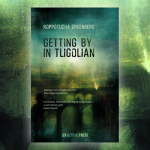Artificial intelligence has come a long way in recent years, and one area where it has made significant progress is in the realm of creative writing. AI writing systems, AI writers or AI authors, are capable of generating original pieces of fiction that are indistinguishable from those written by humans.
Flash fiction, due to its length and requirement for concise and evocative language, is a natural fit for AI writers because they are able to generate such prose with impressive efficiency.
One of the key ways that AI writers are able to do this is by leveraging machine learning algorithms. These algorithms allow the AI to analyze large datasets of existing fiction, learning from the language, structure, and style of human-written stories. By “reading” a vast array of fiction, the AI is able to understand the elements that make a story engaging and effective, and can then use that knowledge to craft its own tales.
But AI writing systems are not simply copycats, churning out stories that are identical to those that have come before. They are also capable of generating original ideas and plots, using techniques such as random word generation and evolutionary algorithms. These techniques allow the AI to explore a vast space of possible story ideas, selecting the ones that are most promising and fleshing them out into full-fledged tales.
One of the benefits of using AI to write flash fiction is that it allows writers to generate a large volume of content quickly and efficiently. This can be particularly useful for writers who are looking to produce a steady stream of short stories for publication or for use on social media platforms.
AI writing systems also offer the potential for collaboration between humans and machines. Some AI writing systems allow humans to provide input or feedback, which the AI can then use to refine and improve its stories. This could allow writers to work with the AI to generate stories that are more complex or nuanced than they could create on their own.
Of course, there are also potential limitations. One concern is that AI-generated stories may lack the depth and emotional resonance of those written by humans. While AI writers are getting better at generating stories that are emotionally engaging, they may still struggle to create stories that are truly moving or profound. Stories may also lack the personal touch that is often present in human-written fiction.
Despite these limitations, AI writing systems are still an exciting development for the world of creative writing. They offer the potential for increased efficiency and collaboration, and may even inspire human writers to think about their craft in new ways. As AI writing systems continue to evolve and improve, it will be interesting to see what they are capable of producing in the future.
90% of the text above this point (and any text in italics throughout this artcle) was written by an AI system with minimal input from from me. The prompt for this article was ‘Write a 1,000 word blog post about flash fiction and AI’. I asked it to create a headline but it was very ‘click-baity’ and so I discarded it. I have only edited the article to help it flow better and also removed some of the duplicated statements. It took the AI system less than 10 seconds to write, and it took me less than five minutes to edit it.
The header image was also AI generated, using the prompt: ‘AI writer’. Scary, huh?
But then I tasked the system with writing a piece of flash. I entered: ‘write a 100 word story’, and added the prompt words: ‘love’ and ‘horror’. The two unedited results are below.
She had given up on ever feeling that kind of love. Then, one day, she met him and everything changed. He was kind and generous, with a heart so big it made her forget all the hurt from before. She felt like she could trust him with her secrets and worries and knew that he would never let her down. As they grew closer, she realized that the love between them was real, and no matter what happened or how much time went by, their bond remained strong. She finally understood what people meant when they said true love never dies – as long as you let it into your heart. Somehow, he had found his way there.
It was a typical summer night with the crickets chirping in the background, but something felt off. As I walked through the forest, I kept hearing strange noises coming from deeper inside. Suddenly, a figure emerged from among the trees. At first glance it appeared human-like, but its skin was cold and metallic – I realized with terror that it was an artificial being. Its eyes glowed red and it let out a shriek like I had never heard before. As it advanced towards me at an alarming speed, my heart raced and my legs froze. Fear filled every inch of my body as I faced the creature of my nightmares.
The technology for AI writing is still in its infancy. Where the content produced for the main blog article could arguably pass for content created for any standard blog, I don’t see how the fiction writing would. But I only spent a short amount of time generating the copy. The AI system relies on input from the user to fine tune its results. It stores these responses to better reply to similar questions in the future. With the examples produced, I accepted the first results supplied. What if I’d spent the time to provide additional feedback or tried to steer the content to better outcome? How much better could these pieces have been? Could I have gotten them to a level to submit them to a lit mag, competition or publisher?
I don’t think I’m ready to actually find out.





